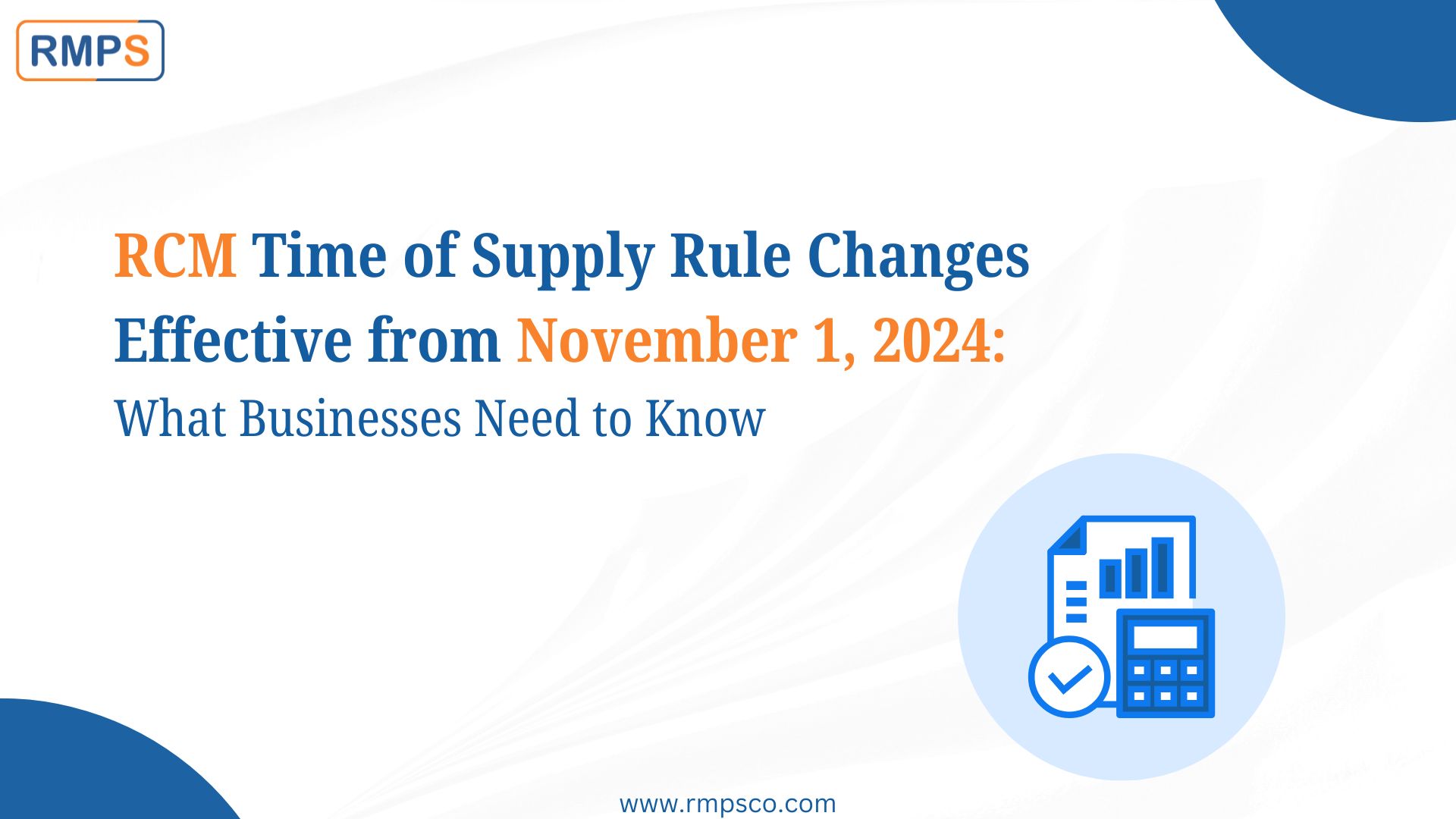
The Central Board of Indirect Taxes and Customs (CBIC) has introduced critical updates to the Reverse Charge Mechanism (RCM) under the Goods and Services Tax (GST), effective from November 1, 2024. These changes aim to enhance compliance, streamline self-invoicing, and ensure accurate input tax credit (ITC) claims. Here’s a detailed breakdown of the updates and their impact on businesses.
Key Updates in RCM Time of Supply Rules
1. Self-Invoicing Requirements
One of the most significant changes pertains to self-invoicing for RCM transactions. Under the revised rules:
- Businesses must issue self-invoices within 30 days of receiving goods or services from unregistered suppliers.
- Failure to meet the timeline could result in penalties and denial of ITC.
Simplified Explanation: To claim ITC, registered businesses must now generate self-invoices promptly for RCM transactions. Timely issuance ensures compliance and avoids penalties.
2. Determination of Time of Supply
The time of supply under RCM is now based on the earliest of the following:
- Date of payment: Either recorded in the supplier’s books or reflected in the recipient’s bank statement.
- Date of invoice issuance: If applicable by the supplier.
- 60 days from the invoice date: For registered suppliers.
3. Grace Period for Past Transactions
According to Notification No. 20/2024, businesses are allowed to issue self-invoices for past periods by November 30, 2024, if they missed earlier deadlines. This offers a one-time opportunity to regularize compliance for previous periods.
Official Amendments: Rule and Section Highlights
The changes are formalized under the Central Goods and Services Tax (Tenth Amendment) Rules, 2024:
- Rule 47A: Mandates issuance of tax invoices for RCM transactions within 30 days of receipt of goods or services from unregistered suppliers.
- Section 12(3) and Section 13(3) of the CGST Act: Specify that the time of supply will be determined by the earliest event among payment date, invoice date, or 60 days post-invoice date.
Implications for Businesses
1. Enhanced Compliance Obligations
Businesses must ensure timely self-invoicing to avoid penalties. This is especially critical when dealing with unregistered suppliers.
2. ITC Eligibility and Penalties
Non-compliance with the new rules can result in the denial of ITC for the applicable period and the imposition of financial penalties. Timely adherence is essential for seamless ITC claims.
3. Impact on Operational Processes
Organizations must reassess their procurement and accounting processes to align with the updated RCM rules. Automated solutions may prove beneficial in minimizing manual errors.
Preparing for the Transition
To ensure a smooth transition to the updated RCM rules, businesses should:
- Educate Teams: Conduct training sessions on the revised self-invoicing and RCM processes.
- Invest in Technology: Use automated GST compliance software to streamline self-invoicing and payment tracking.
- Strengthen Vendor Management: Monitor interactions with unregistered suppliers and ensure timely compliance.
Conclusion
The RCM Time of Supply Rule changes underscore CBIC’s focus on improving tax discipline and ITC utilization. Businesses must swiftly adapt their systems and processes to stay compliant and avoid penalties. By leveraging technology and ensuring timely compliance, organizations can navigate these changes efficiently.
LinkedIn Link : RMPS Profile
This article is only a knowledge-sharing initiative and is based on the Relevant Provisions as applicable and as per the information existing at the time of the preparation. In no event, RMPS & Co. or the Author or any other persons be liable for any direct and indirect result from this Article or any inadvertent omission of the provisions, update, etc if any.
Published on: December 4, 2024
